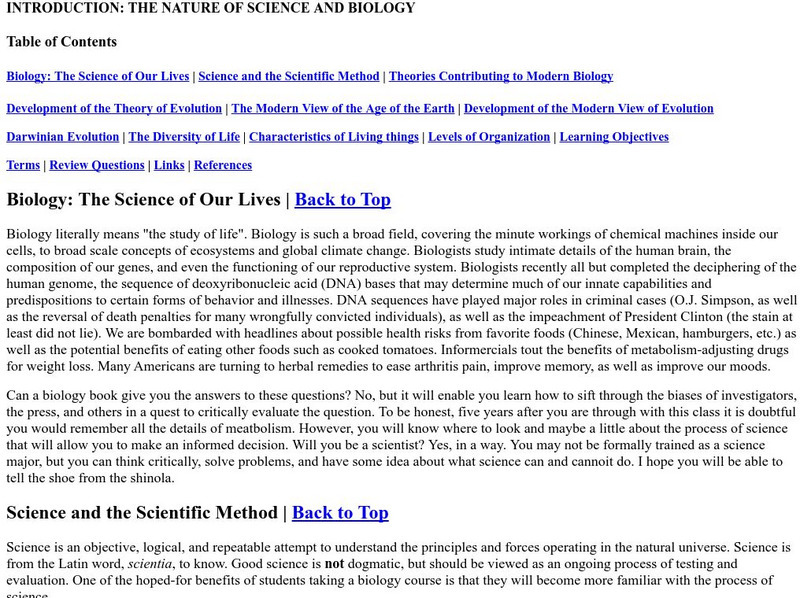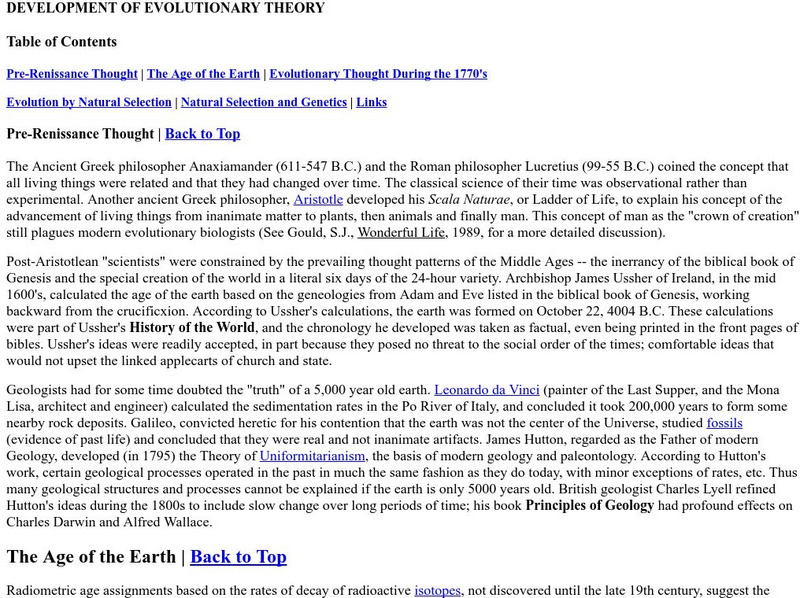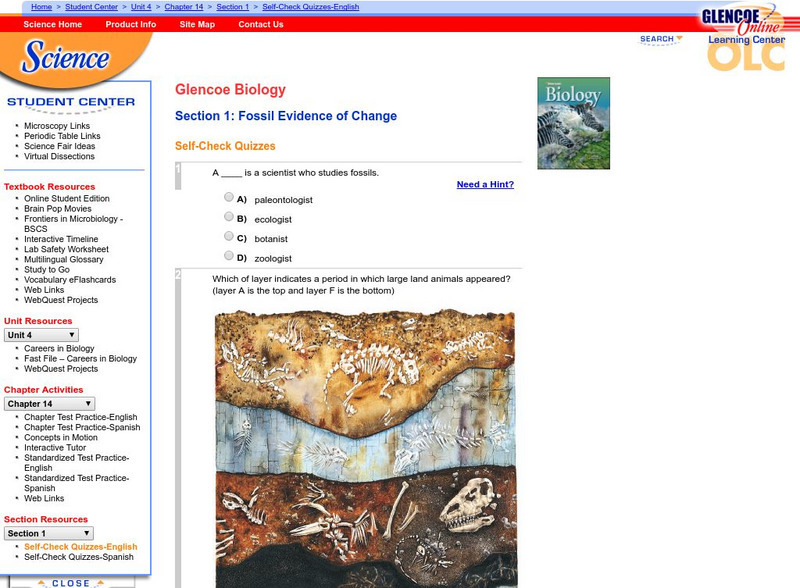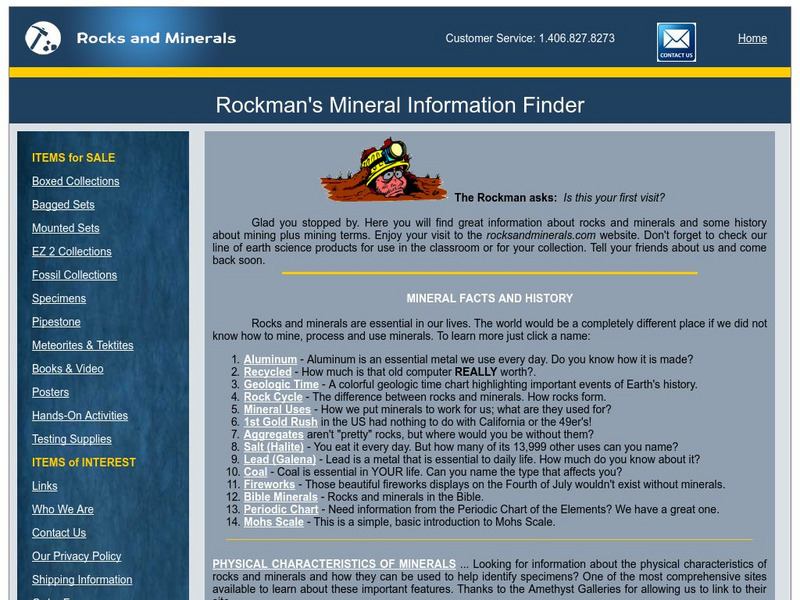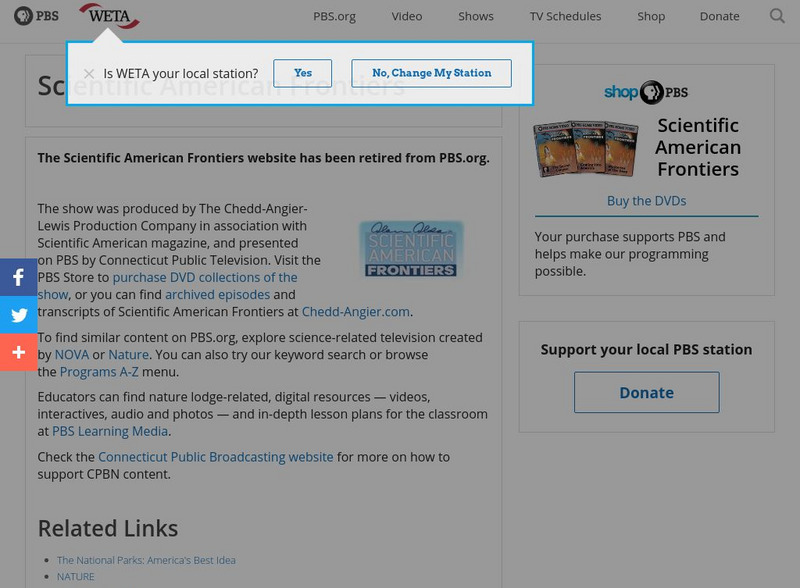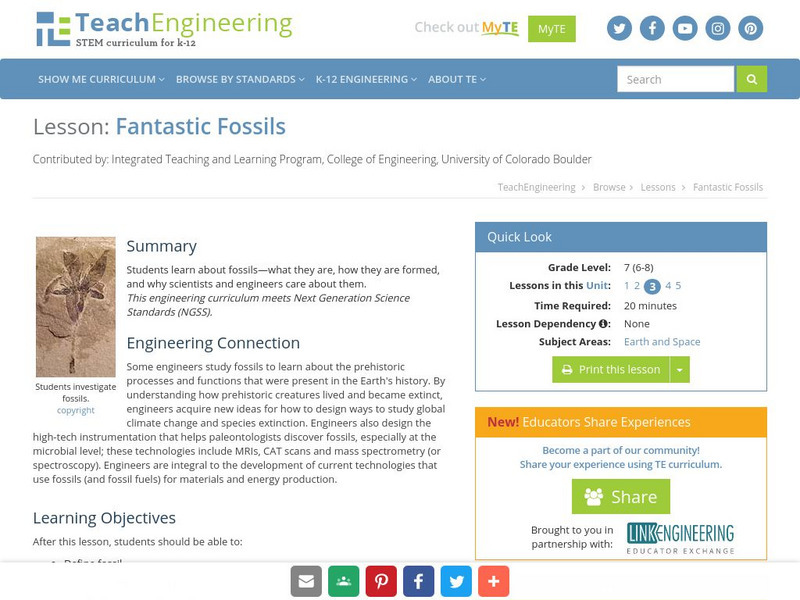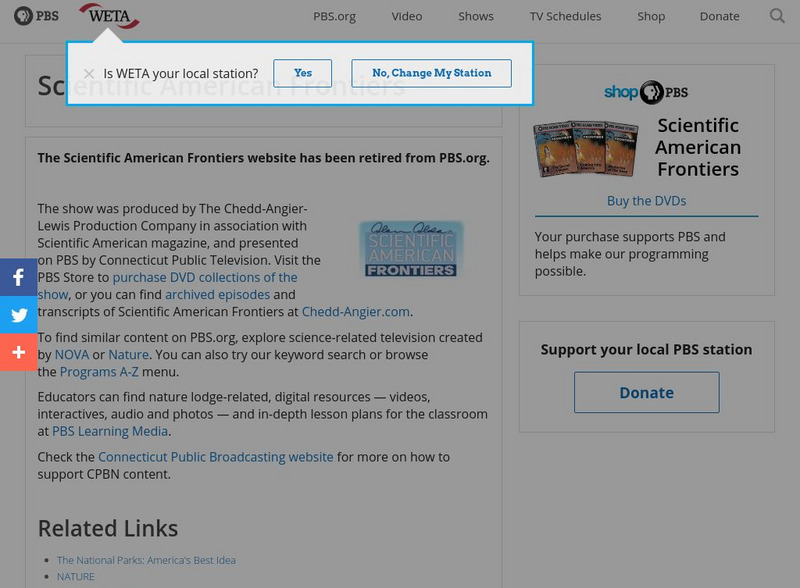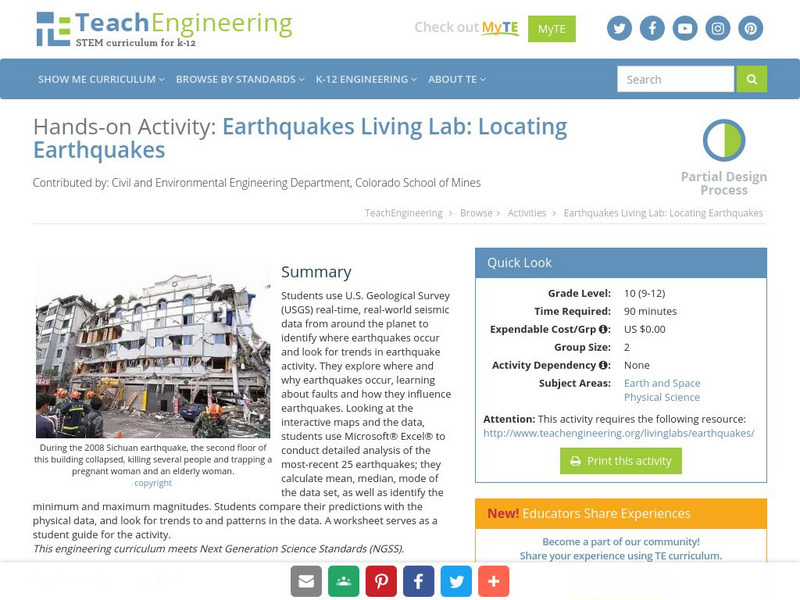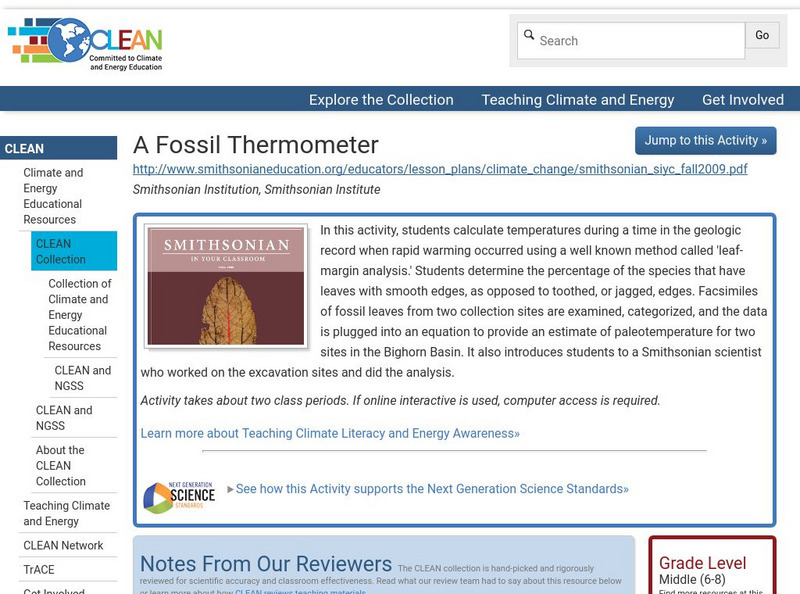Estrella Mountain Community College
Online Biology Book: The Nature of Science and Biology
Use the scientific reasoning and critical thinking to take an in-depth look at the basics of biology.
Estrella Mountain Community College
Online Biology Book: Development of Evolutionary Theory
Using diagrams and descriptive illustrations, this college-level biology reference book discusses the development of evolutionary theory.
McGraw Hill
Glencoe Biology: Fossil Evidence of Change: Self Check Quiz
Try these five multiple-choice questions about fossil evidence of change. After submitting answers, students can review the material.
Other
Rockmans Trading Post: Welcome to the Mineral Information Finder
During your lifetime, you will use more than a million pounds of rocks, minerals, and metals. Dig through this web site and find out how.
Australian Museum
Australian Museum: Dating the Earth
How do scientists know how old the Earth is? What is radioactive dating? Are there other dating methods? Get the answers to these questions and others at this site presented by the Australian Museum Online.
Curated OER
The Virtual Fossil Museum: Fossils Across Geological Time and Evolution
Picture of the fossil Leanchoilia superlata from the Phylum Arthropoda recovered from Burgess Shale.
Other
Fossil Museum: Paleobiology
This table is an overview of the appearance and extinction of major groups of organisms through geologic time.
PBS
Pbs Teachers: Expedition Panama: Bridge That Changed the World
Investigate the Coriolis effect on the directional flow of currents by measuring linear speeds at different places on the globe. Create a timeline demonstrating geologic time.
EL Education
El Education: Get a Clue
This nonfiction children's book was created by 1st grade students at the Genesee Valley Community Charter School in Rochester, New York, as part of a learning expedition on fossils and local geological history. The expedition consisted...
Open Curriculum
Open Curriculum: Multicellular Life
To describe the diversity of unicellular organisms which arose over 2 billion years of evolution.
TeachEngineering
Teach Engineering: Fantastic Fossils
Students learn about fossils - what they are, how they are formed, and why scientists and engineers care about them.
Science Education Resource Center at Carleton College
Serc: Personal Timeline
Use this activity to help students understand the history of Earth by creating their own timeline of their life. By creating their timeline, students can see the resemblance and make connections between Earth's history and their own....
Virginia Tech
Virginia Polytechnic Institute: Greenhouse Dinosaur Extinction Theory
This comprehensive page discusses the Asteroid Impact vs. Volcano-Greenhouse dinosaur extinction debate. It was written by paleontologist, professor, and scientist Dr. Dewey McLean.
Treehut
Suzy's World: Life on Earth
This site from Suzy's World, which is a personal site from Suzy Cato, explores what evolution is, and how long there has been life on earth. Content includes fun facts, a great experiment, and a classroom activity.
PBS
Pbs Teachers: Life's Big Questions: How Did the Universe Begin?
Investigate the Big Bang Theory of the origin of the universe by researching the light spectrum and the actions of light waves. Create models that illustrate red shift in a moving star and the expansion of the universe.
Other
Georgia Perimeter College: The Permian Period
This resource provides basic information of the changes that took place during the Permian period as well as the animals that populated the Earth during this time.
Encyclopedia of Earth
Encyclopedia of Earth: Proterozoic
Article describing the Proterozoic Eon, which lasted from 2.5 billion to 543 million years ago. It covers the subdivisions of the Proterozoic Eon, geology, Earth's atmosphere at the time, climate, and life forms. (Published: July 26, 2010)
TeachEngineering
Teach Engineering: Earthquakes Living Lab: Locating Earthquakes
Students use U.S. Geological Survey real-time, real-world, seismic data from around the planet to identify where earthquakes occur and look for trends in earthquake activity.
Science Education Resource Center at Carleton College
Serc: The Sedimentary Processes of Transgression and Regression
This article gives a detailed explanation of how transgression and regression of sea levels work to create deposits of sedimentary rocks. Illustrations show the layering that takes place over time. The article discusses how geologists...
University of California
Ucmp: The Museum of Paleontology
This site contains on-line exhibits including animals, plants, time periods, phylogeny, geology, and evolution. Also, a search is provided at the bottom of the site for more specific information.
Science Education Resource Center at Carleton College
Serc: Tracking Global Climate Change: Microfossil Record of Planetary Heat Pump
This lesson plan integrates physics, biology, and geology to understand planetary processes that contribute to climate change through time. It includes an activity that demonstrates heat transfer and it uses figures and charts to...
Climate Literacy
Clean: A Fossil Thermometer
In this activity, young scholars calculate temperatures during a time in the geologic record when rapid warming occurred using a well known method called 'leaf-margin analysis.' Students determine the percentage of the species that have...
Science Struck
Science Struck: Mesozoic Era Timeline and Important Facts
Provides an overview of the Mesozoic Era, its time frame, geological and tectonic activities, the climate, plants and animals, and extinction events towards the end of this era.
Other popular searches
- Geologic Time Scale
- Geologic Time and Fossils
- Geologic Time Line Project
- Evidence for Geologic Time
- Relative Age Geologic Time
- Geologic Time Poster
- Geologic Time Lines
- Index Fossils Geologic Time
- Geologic Timelines
- Geologic Time Book Mark
- Geologic Time Scale Tests
- Geologic Time Scale Models


